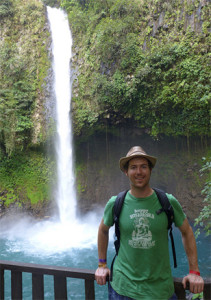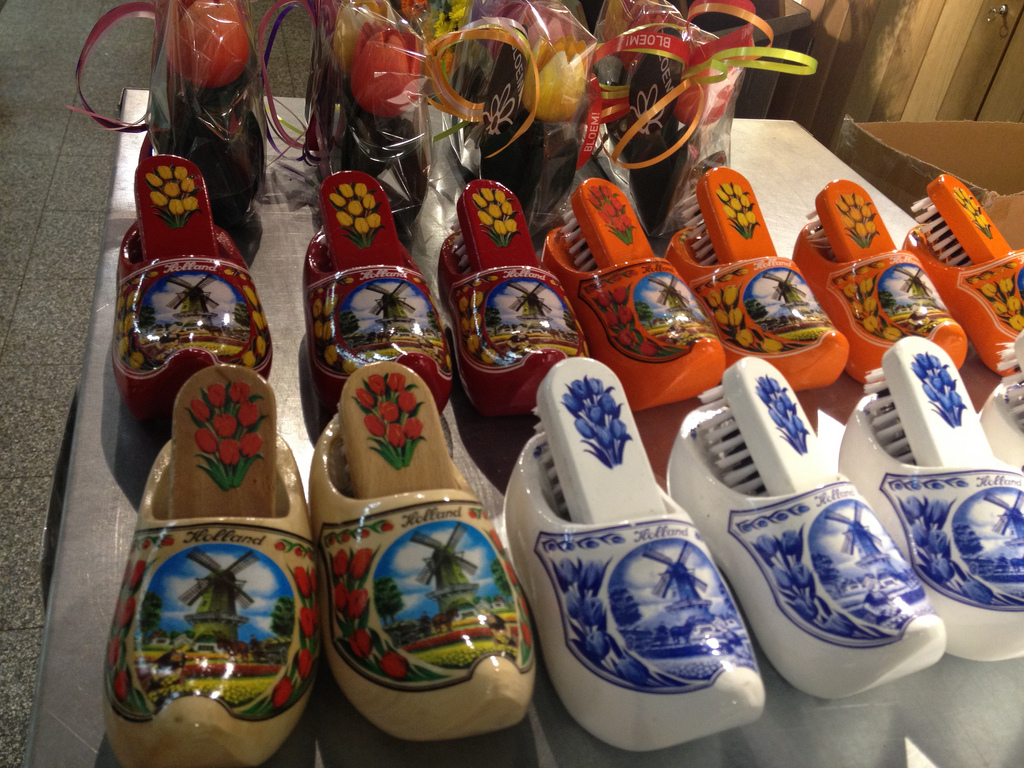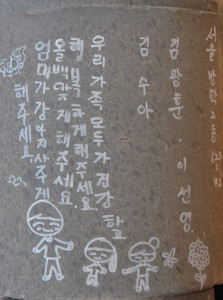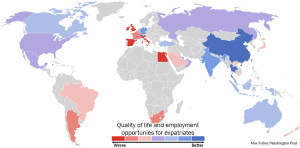We’ve been busy. Really busy. And that’s cut the time we have to record to next to zero. It’s also cut down our ability to polish and publish the recordings we’ve done. Consequently we’ve got several episodes pending that haven’t seen the light of day yet. But feel free to head over to the GTFOutcast YouTube Channel to watch them.
Episode 11 – Financial planning while traveling and how to cut costs
Your front row seat for conversations with two computer hackers turned travel hackers – living globally, financially independent and semi-retired, both following their dreams and helping you to do the same. You can also find us on iTunes, YouTube or however you listen to podcasts, and we love getting your 5-star reviews. Follow the conversation with us on Twitter @GTFOutcast and stop into the blog often to read the latest and give us comments and feedback.
On the December 19 episode of the GTFOutcast, Beau and Taylor discuss the many ways to cut down on your monthly expenses — whether it is while you are traveling, or to save up more at home before setting off on your travels.
Watch GTFOutcast Episode 11:
0:15 – Taylor is finally ready to move out of his house after putting it up on the market.
1:24 – Taylor talks about how his RV risked being towed away
4:34 – Beau segues into the topic of geo-arbitrage — basically a concept of “3rd world budget; 1st world income,” which has worked out (unsurprisingly) really well for him. Taylor talks about how life on the road in an RV isn’t as cheap as people think it could be.
7:30 – Beau breaks down his monthly expenses living in Mexico City:
- $1200 /mo for all housing and utilities for a 2 bedroom house on a short-term lease
- $800-1000 /mo for food, drinks, coffee etc.
- $1000 /mo for travel
9:52 – Taylor guesstimates his expenses:
- $800/mo for RV slip+all utilities to park at nice RV camp
- food / drinks TBD as Taylor plans to cook a lot more to save money
- travel in the RV so far gives 8mi/g (!!!) and $.45/mi just in gas
14:00 – Taylor suggest many ways reduce food/drink costs, like, stop drinking coffee from Starbucks! Consuming less alcohol is also a no-brainer. Cut back on Coke/soda by buying your own fizzy water/soda maker, like a Sodastream machine. How about getting a filling meal from a sandwich shop versus eating at fine dining restaurant. Granted, these are some things one cannot always do when traveling.
16:09 – Taylor talks about how he cut costs on coffee bought from outside by getting a coffee maker and an AeroPress.
18:43 – Beau talks about how he eliminated all his monthly auto-billed costs like cable subscriptions. Beau also cut back on discretionary expenses such as toys. As in, expensive ‘man toys’.
25:00 – Beau recommends thought exercises to be more aware of what you’re spending on. Like, $4 on a cup of coffee, or what else the same amount of money could buy at a beach in Costa Rica? Both Beau and Taylor highly recommend mint.com for financial planning.
28:29 – Beau wraps up the show.
Save $100 on your monthly cable bill TODAY and when you’re traveling. Find how in the next episode of the GTFOutcast.
Good and Bad Places to Travel
A couple of maps caught my eye today over at the Washington Post. The first is a map that HSBC put out showing the best and worst countries to be an expat in. Some of the factors don’t apply to your average GTFOuter, such as expat salaries and the ability to own property, so take it with a grain of salt.
The second map shows the countries most and least friendly towards foreigners. This one was released by World Economic Forum. Some surprise good news for travelers across North Africa and the Middle East. That’s nice to know. And some surprising results from Latin America as well.
Episode 10 – Falling sick and how to deal with medication when traveling
Your front row seat for conversations with two computer hackers turned travel hackers – living globally, financially independent and semi-retired, both following their dreams and helping you to do the same. You can also find us on iTunes, YouTube or however you listen to podcasts, and we love getting your 5-star reviews. Follow the conversation with us on Twitter @GTFOutcast and stop into the blog often to read the latest and give us comments and feedback.
On the November 17 episode of the GTFOutcast, Beau and Taylor discuss travel medication and how to go about buying and carrying medicines when traveling to foreign countries.
Watch GTFOutcast Episode 10:
0:44 – Beau kicks things off with some “under the weather” talk.
2:00 – Taylor asks Beau about how to manage medications when traveling. Beau brings up the important fact that some household drugs in America are known by different brands in other countries.
5:18 – Beau often describes the symptoms to the local pharmacist. But be careful as getting the wrong drugs in exchange can be dangerous for your health. That said, doctors and pharmacists are often well-educated people and may speak English compared to the average local.
9:25 – Beau recommends getting some booster shots before setting off on travels, like vaccinations for hepatitis A and hepatitis B — which are always recommended when going to tropical nations.
11:56 – Taylor brings up antibiotics and carrying your prescribed essential medications. Beau also advices on carrying medications with your name mentioned on the casing, just to be safe when passing through security.
16:56 – Taylor recommends carrying alcohol wipes, for cleaning cuts. Depending on where you are going, it’s also important to keep all of your pills and your medications in its original packaging. Penalties in some foreign countries for (or perceived) drug peddling are sometimes death.
20:55 – Beau talks about travel insurance and the perks of having it. Taylor talks about DAN — the Diver’s Alert Network.
24:20 – As an expat, Beau doesn’t need to apply for ‘Obamacare’ — most of the plans doesn’t cover Americans internationally
26:35 – Taylor wraps up the show
Inspiration to GTFO
Hi. Beau here. I was watching a few TEDx videos tonight and thought you’d like to see them. They’re funny, information shorts on how to get inspired to GTFO of whatever you need to FTW.
Lots of good lessons here, including the exercise of “what’s the worst that happens?” He realized, as I did, that he was in a worse place than if I’d failed at doing what I was thinking of. That’s part of the battle – knowing you should live your dream. What’s the worst that could happen to you?
Adam talks about the next part, how to launch yourself into doing whatever you want. His hurdle was debt addiction and an “upgrade everything” mentality. What’s yours?
Work isn’t worthless but your job is. It’s trash – smieci – in my broken Polish. Leave your job and find your work. Disrupt your life as it’s become and reset it to what you need to do to be happy. Even if it’s not your job. Live every week like it’s Shark Week. Is your job what makes you happy?
All the videos address the scripted nature of the reality show of our lives. (You knew those are scripted these days, right?) Break the cycle. Go off script. Make your life a story worth watching, whether it’s a 3D IMAX or a sitcom. This is your life. Live your dreams.
Episode 09 – Traveling alone vs. traveling with a group — which is better?
Your front row seat for conversations with two computer hackers turned travel hackers – living globally, financially independent and semi-retired, both following their dreams and helping you to do the same. You can also find us on iTunes, YouTube or however you listen to podcasts, and we love getting your 5-star reviews. Follow the conversation with us on Twitter @GTFOutcast and stop into the blog often to read the latest and give us comments and feedback.
On the November 1 episode of the GTFOutcast, Beau Woods and Taylor Banks talk about their experiences traveling solo versus traveling with a group. From the advantages to the disadvantages, traveling alone or with someone else makes for an interesting discussion. Which do you prefer, and why? Let us know in the comments.
Watch GTFOutcast Episode 09:
0:36 – Taylor asks Beau about his solo trip to Costa Rica and Nicaragua
2:27 – Beau shares his experience traveling around by bus — which cost him a *shocking* $50 for 10 days!
4:17 – Taylor dives into the topic of contrasting solo travel to that of traveling with a group or a partner. Taylor has rarely traveled alone, while Beau has largely traveled by himself, and gives his reasons as to why traveling solo is great.

5:48 – Taylor explains his heightened sense of security and acclimating when traveling with his wife.
9:30 – Clearly there costs benefits to traveling in a group versus going alone. Like sharing accommodation costs, eating out, shared transportation, etc.
10:57 – Taylor shares his thoughts on traveling with a loving partner and how traveling together has been a great bonding experience. The situations a couple faces when traveling together can help learn more about each other — which could end up in a break up, or evolve into a better relationship.
13:53 – Taylor now talks about the upside and the downsides to group travel. Safety and security issues are fairly non-existent, but deciding where to eat can be annoying when you are in a group!
15:15 – Beau brings up the theories mentioned in the book 16:30 – Taylor talks about the fun involved in doing the research yourself and getting a chance to be adventurous when traveling solo or as a couple. Something that’s hard to do when traveling in a group.
20:30 – Taylor mentions the Get Lost guides — which are not written by your typical travel writer, and how the guides helped him go the off-the-beaten path in Amsterdam.
23:37 – Beau talks more about the positives and the sense of accomplishment traveling solo provides.
26:08 – Taylor wraps up the episode.
Episode 08 – Why carrying a GPS device is more helpful than a smartphone
Your front row seat for conversations with two computer hackers turned travel hackers – living globally, financially independent and semi-retired, both following their dreams and helping you to do the same. You can also find us on iTunes, YouTube or however you listen to podcasts, and we love getting your 5-star reviews. Follow the conversation with us on Twitter @GTFOutcast and stop into the blog often to read the latest and give us comments and feedback.
On the October 8 episode of the GTFOutcast, Beau Woods and Taylor Banks talk about their upcoming travels, discuss what traveling in an RV is like, before closing out the show with the usefulness of GPS devices when traveling to parts of the world where internet connectivity may not always be available for your smartphone.
Watch GTFOutcast Episode 08:
0:21 – Beau kicks off the show with some molé, a type of sauce commonly used in a lot of Mexican dishes, from pastry to salads. Taylor asks about the availability of a gluten-free food in Mexico City.
2:38 – The duo then dive into the topics. Taylor describes his first big trip in his RV, from Atlanta to Louisville (in Kentucky). A 7-hour drive full of lessons learned about riding and parking a 13,500 pound RV. Taylor talks about how the living conditions were for four people inside the RV.
10:18 – Beau brings up the issue of bringing only the essentials when staying in a confined space. Learning how to live with only the things you really need when traveling in an RV.
12:40 – Taylor asks Beau about his next trip to Costa Rica and Nicaragua.
14:16 – Beau then takes the discussion into how a traveler could better plan for a trip to a part of the world where information on getting around, where to stay, etc., isn’t easily put up online by the local population.
16:58 – Taylor interjects with the important fact the prices quoted online are often far higher than what may be charged if you were to contact the hotel directly.
20:15 – Taylor questions Beau about the safety of hostels, especially when traveling with expensive electronics and safety for women in general.
24:27 – Guidebooks can be outdated because it was written once from one visit, which implies they aren’t updated as much. Beau points out this can be an issue for a rapidly developing country and why sometimes relying on travel forums is a better option.
25:32 – Travelers have become quite reliant on their smartphones when traveling, but in regions where you may not even get internet connectivity on-the-go, Taylor recommends carrying a Garmin or TomTom GPS device. He recalls his time in Costa Rica when a refurbished GPS device came in handy when riding towards a volcanic spot.
How to Setup Your Mailbox While Traveling
No, we’re not talking e-mail or your office mails. We’re talking about how you can receive your physical mail (letters and bills) and other packages while being away from home for extended periods of time. Like when you are traveling or away on a long vacation.
Mail forwarding services
Did you know the US Postal Service has a mail-forwarding service? For a weekly fee, USPS will hold your mail, package it up, and reship it to you at a given address each week by Priority Mail. The Premium Forwarding Service costs $15 to enroll and is a temporary service that can be used from 15 days up to 1 year. This way, you can continue to receive your bills, and avoid incurring late fees and penalties for non-payments.

Did you know you can even use your local UPS or Fedex stores as a mailing address? In addition to the privacy you get in not putting your home address out there, the secondary benefit comes when packages delivered need a signature. Often times, packages are not delivered when the person to whom the parcel was specifically addressed to was not home to sign for it. This means having to physically visit the UPS store or call the delivery guy to come back to your house. Something you can do only once you have returned from your travels.
Using a UPS or Fedex store as your mailing address, which are legally authorized to offer such services, they will receive the package and even sign for it on your behalf. The downside is, once they receive the package, it remains with them until you personally go and collect it from the store. UPS will not forward the package again.
Then there’s Pak Mail, who offer mailbox rentals, mail forwarding, faxes, and even notary services.
If you are an RV owner, there are several region–specific operators and RV clubs that offer mailbox rentals at RV parks and mail forwarding services to your next destination. They can even receive faxes on your behalf.
Receive it, Scan it, E-mail it
What if you wish to read or see the contents of you mail/letters as soon as you get them? For that there are services like Earth Class Mail. They will accept your mail, open it, scan the letter and make the contents available to you online. This is a service that comes in very handy for receiving important letters in paper format and need them scanned and e-mailed to you. For physical goods and other packages, Earth Class Mail have forwarding options where by they will then send the package to any location you desire.
 Virtual Post Mail is a service where, for as little as $5 a month, users get a US-based virtual mailbox that’s secure, reliable, and easy to use. Virtual Post Mail receives the member’s mail and makes hi-res scans of its content to the member. Members can view their mail and packages in high resolution images online using only either their browser or mobile phone. Virtual Post Mail users claim they receive fewer junk mail and none of those unsolicited mails. Virtual Post Mail can even physically send all your mails and goods in bulk. If not, they will even shred all your mails on request.
Virtual Post Mail is a service where, for as little as $5 a month, users get a US-based virtual mailbox that’s secure, reliable, and easy to use. Virtual Post Mail receives the member’s mail and makes hi-res scans of its content to the member. Members can view their mail and packages in high resolution images online using only either their browser or mobile phone. Virtual Post Mail users claim they receive fewer junk mail and none of those unsolicited mails. Virtual Post Mail can even physically send all your mails and goods in bulk. If not, they will even shred all your mails on request.
As much as we love these services, GTOutcast still advice our listeners to move as many of their bills and statements to e-bills wherever possible. This way you get your bills delivered via e-mail, which can be accessed anywhere you go — and you save on trashing paper. And while you can set up many of these services even after you have left home, it’s best you do all necessary paper work and reassurances before setting off on your journey.
Selling foreign goods to fund your vacation? It’s possible
One of the joys of walking around street markets of the world is coming across beautiful, artsy pieces of cultural artifacts and other souvenirs unique to that particular country. Silk clothing in East Asia, clog shoes in Netherlands, ornately designed lamp shades in Istanbul. We could go on, but you get the idea. Ever wondered about buying and selling these pieces back home to raise money and fund your vacation(s)?

It’s one of the ways we like to think a traveler can make money while still on vacation. It’s something we at GTFOutcast have thought about a lot and even done at a few occasions. Buy high quality, authentic goods from local markets in Latin America or Asia, and then sell them on eBay or through a vendor back home.
Take for example if you plan to sell your foreign merchandise back in the United States. As an American tourist, we are allowed to bring in anywhere from $200 – $1000 worth of foreign merchandise, all depending on the country* we bought the goods from. That is unless you managed to sneak in much more through customs without suspicion. Not that we endorse you do that. (Ahem)
Even if you did have to pay customs duty, it is generally less than 10% of the total bill amount you paid (converted to US$). Not to worry, this additional value on top of the price you paid for the goods is negligible if you find buyers still. Say if you bought trinkets from Thailand at $2 a piece, and you find buyers back in America are willing to pay up to $10 or more for something exotic, and definitely an item not easily found in America. Now imagine you bought a 100 pieces of trinkets at $2 a piece and sold them at $10 a piece. At an 80% mark-up, the profits alone come to $800. Sell 200 pieces and you could cover an entire travel budget. Beau Woods is currently in Mexico City and he has been trying to find how to get fresh designs on shirts in Mexico City, ship them back to the US and sell for a profit.

Selling goods in your home country back from your vacation is one thing, but how can one sell these goods while they are traveling? By using third party fulfillment for arbitrage to simplify the process. You handle the shipping of goods to a third party vendor, and the partner handles the sales process. You can even do this online by partnering with the right vendor on eBay or via Amazon Marketplace. The third party vendor will charge a fee, but it still saves you money and the headaches of handling sales transactions while on the go. And as per the stipulated agreement, the vendor simply wire transfers the money you are owed.
If online isn’t your thing, try contacting your local consignment stores. Just ship the goods via a postal service (or even the expensive courier services) to the consignment store, and they display the goods at their store and act as an agent to conduct the sale.
If the foreign country you are in allows it, you could even set up a small booth or a spot at a local flea market to sell your own goods. For example, hippies who came to Goa (in India) used to be famous for selling their creations and unused valuables in a bid to raise money to fund their stay — or even a ticket back home. That’s how the famous Anjuna Flea Market got its start!
However you sell the goods — by yourself or online using a third party — you really need to be sure of the demand for such goods. To be safe, for starters, only pick products you know can be easily sold through your network of friends back home. Like all businesses, there is some risk involved. What you find cool, others back home may not. You really don’t want to have a backlog of unsold inventory of goods that have no takers. On the flip side, if in the case you are unable to meet demand, or you end up working with an unreliable third party vendor, that’s a lot of dissatisfied customers. A situation hard to handle when you are in the middle of travel.
But if successful, this a great way to make use of your time in a foreign land productively and a means of earning an income while vacationing. Our only advice is you refrain from selling common souvenirs (like fridge magnets, figurines of popular attractions, etc.) that bear the names of a city or country. That’s simply cheating the travel experience for many.
Useful resources:
U.S. Customs and Border Protection – Duty-free exemption, Gifts
Learn more about Amazon Marketplace
Episode 07 – Learning languages and absorbing local culture
Your front row seat for conversations with two computer hackers turned travel hackers – living globally, financially independent and semi-retired, both following their dreams and helping you to do the same. You can also find us on iTunes, YouTube or however you listen to podcasts, and we love getting your 5-star reviews. Follow the conversation with us on Twitter @GTFOutcast and stop into the blog often to read the latest and give us comments and feedback.
On the September 20 episode of the GTFOutcast, Beau and Taylor discuss how learning local languages helps break the ice in a foreign country and makes immersing oneself in the local culture easier.
Watch GTFOutcast Episode 07:
0: 30 – Beau and Taylor talk about how they plan to meet in Louisville and do an episode of GTFOutcast together in person.
2:00 – While Taylor was cooking his Loco-Moco burger, Beau segues into the topic for the day, which is about how to best immerse yourself in the local culture as soon as you arrive. And how food is often a good gateway into understanding foreign culture.
6:35 – Taylor talks about his experience teaching in Amsterdam and how at the end of the class, the whole group would cook together.
9:34 – Beau talks about DuoLingo, a free language education website; Taylor talks about TripLingo, a language service he found useful.
11:48 – Beau insists learning new languages helps greatly and asking for directions when traveling — or even how it can make you new friends.

15:52 – Taylor brings up his experience of speaking broken Spanish in Barcelona, where the dialect spoken was different.
20:30 – Beau ends the session with his experience in South Korea attending a security conference there and how it helped network with locals
22:20 – Taylor plugs his upcoming blog with his girlfriend called thelearningbanks.com, which will chronicle their journey as they travel across the United States in their RV.

